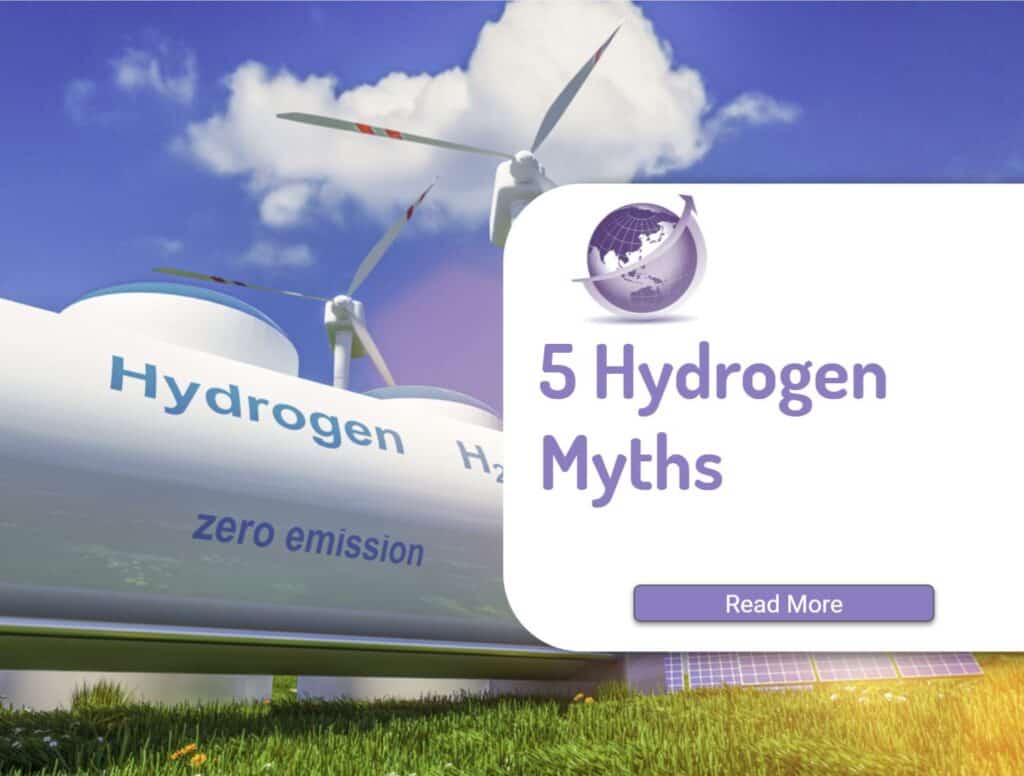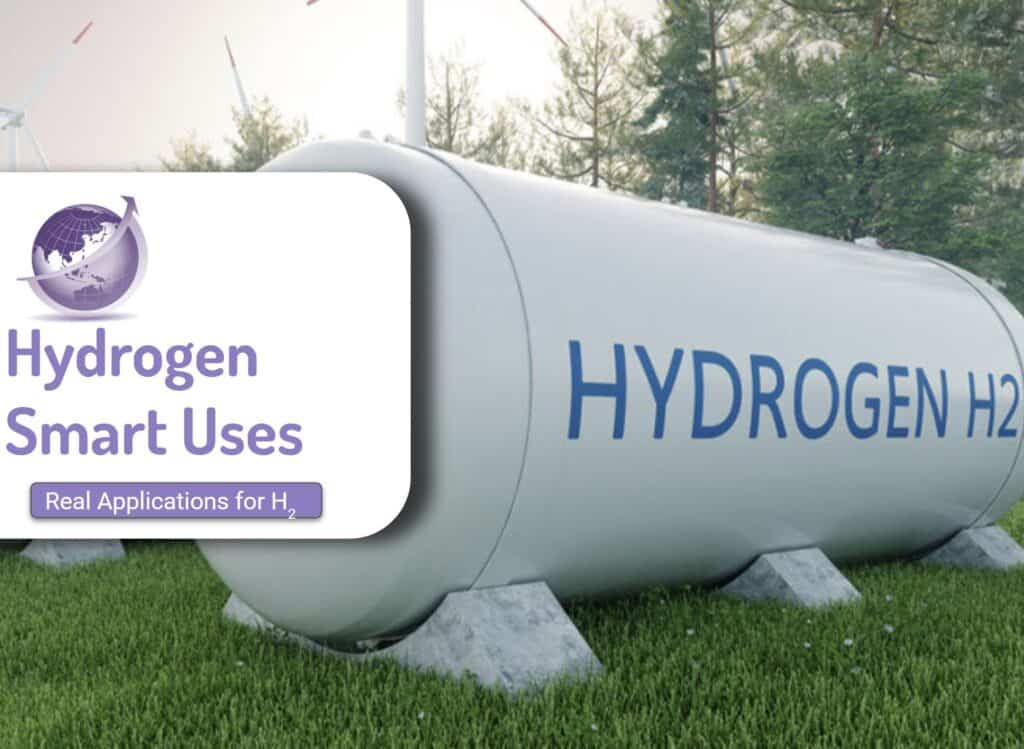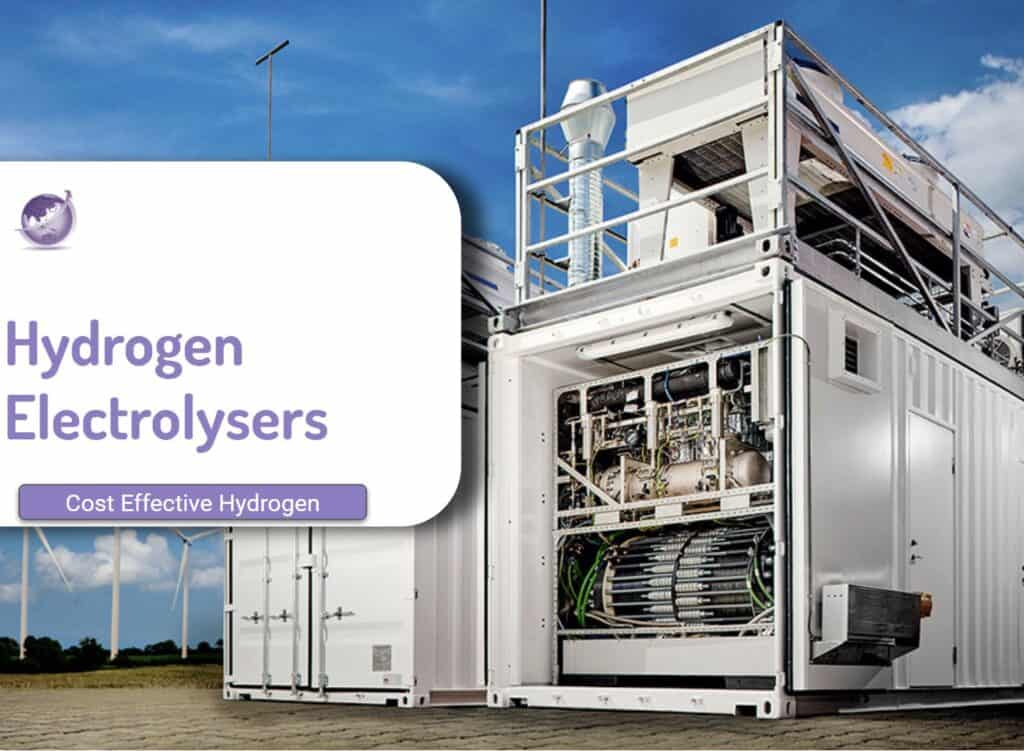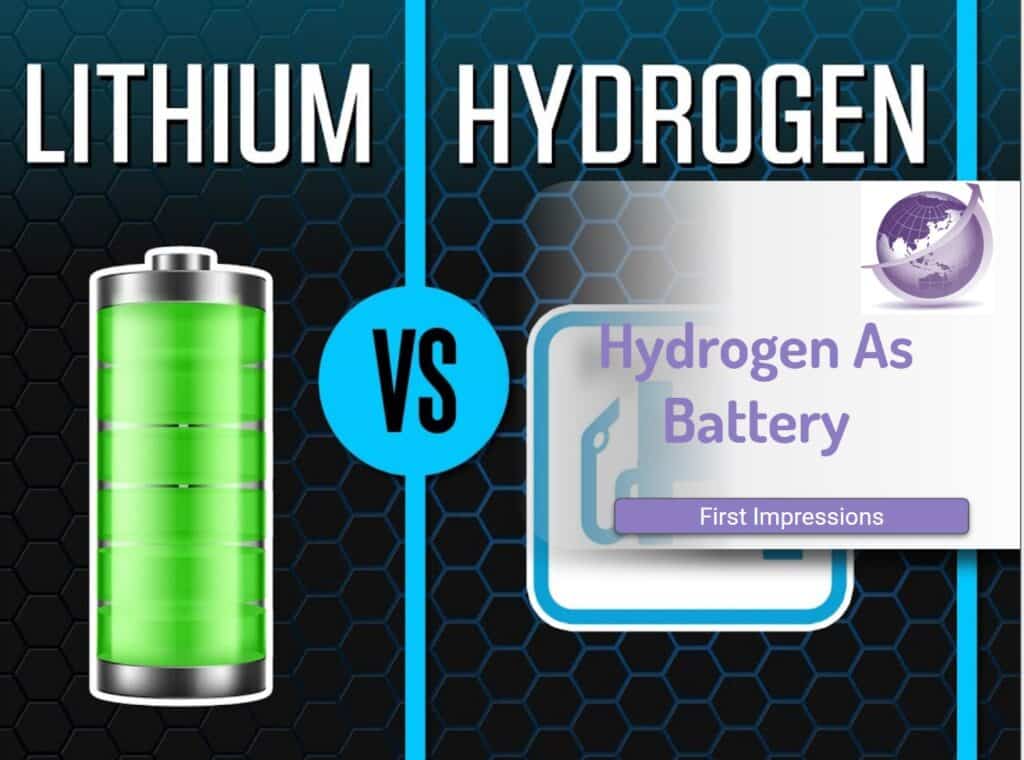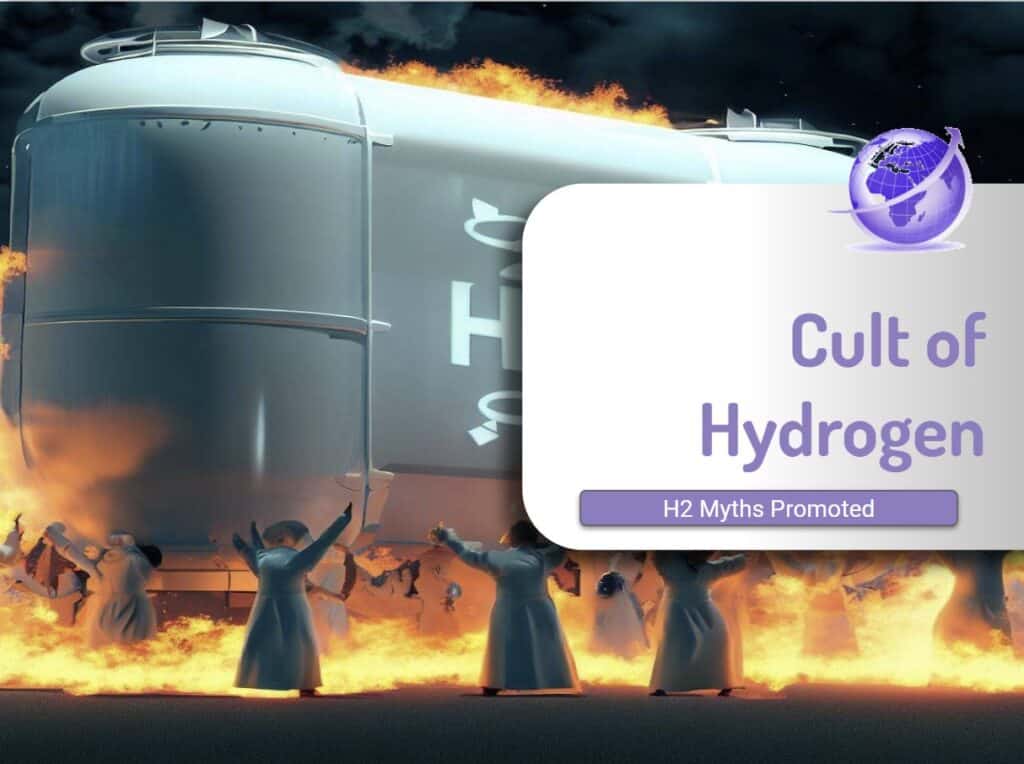Dr Paul Martin updated his 2021 article “Hydrogen Thoughts Distilled” in Dec 2023 encompassing his concerns about hydrogen, in one convenient place! In summary, hydrogen is not a fuel. It is a good chemical precursor for fertiliser and an oxidising agent. His distillation of the uses for hydrogen shows hydrogen (H2) has no place in the net zero plans for fuel, for transportation, and for transmission.
Hydrogen is being sold as if it were the “Swiss Army knife” of the energy transition. Useful for every energy purpose under the sun. Sadly, hydrogen is rather like this Swiss Army knife, the Wenger 16999 Giant. It costs $1400, weighs 7 pounds, and is a suboptimal tool for just about every purpose!
Dr Paul Martin – Linkedin

Hydrogen Thoughts Distilled – Summary
Five key points are:
- Hydrogen as Energy. Hydrogen is not a universal energy solution. Martin compares it to an impractical and expensive Swiss Army knife.
- Inefficiency and Cost. Hydrogen fuel is inefficient and costly for transport.
- Electrical Alternatives. Direct use of electricity for heating and energy storage is more efficient and economical than converting it to hydrogen. Hydrogen has to be reconverted back to energy.
- Industry Skepticism. There’s scepticism about the role of hydrogen in the energy transition. Replacement of ‘black hydrogen’ with greener alternatives will be costly and often impracticable.
- Fossil Fuel Greenwashing. The fossil fuel industry is using H2 as a bait and switch to protect stranded gas assets and business model.
1. Hydrogen as Energy – Inefficient and Ineffective Fuel
His overriding view is H2 is foolish for fuel or a way to store electricity.
- It’s too expensive, for reasons that are structural and which can’t be fixed by innovation.
- Black hydrogen is made from fossils. Production emits over 10 kg CO2 (14 kg CO2e/kg), and all emissions got directly to free atmospheric sewer
- Black hydrogen price ~ $1.50/kg
- Black H2 is already $11/MMBTU or $11/GJ of higher heating value (HHV).
- Too expensive to waste as a fuel for heating or transport.
- It’s expensive because it’s inefficient
- The real deal killer is that it is also ineffective as a fuel. It is difficult and expensive to move and store.
2. Inefficiency and Cost
Hydrogen’s fundamental problems can’t be fixed by innovation, i.e. by better technology. It has 2 fundamental problems when used as an energy medium rather than as a chemical,
- Exergy destruction
- Poor properties as a molecule. The low energy density per unit volume makes it difficult and expensive to move and store.
3. Electrical Alternatives
Transportation
The hydrogen fuel cell car uses 3.2x as much energy and costs over 5.4x as much per mile driven as an electrical battery car. He corrects the graphic by Dept Transport and Environment with 2050 numbers. He adds carbon capture and storage, and
- Direct electrification of battery electric vehicles – 81%
- Hydrogen 42% without carbon capture, but only 11% when you include carbon capture.
- If you include carbon capture with petrol, it is only 7% with carbon capture.

Heating
Martin points out that burning gas for heat where needed is more efficient that burning gas in a middle man (power station), using a heat pump even with a Coefficient of Production of 3. Scenario A versus B. Moreover, it saves all the capital of a power station and transmission lines.
With hydrogen, made from renewable energy, every heating case is better served by electricity (scenario E than by hydrogen derived from electricity (C and D) Scenarios C, D and Ed
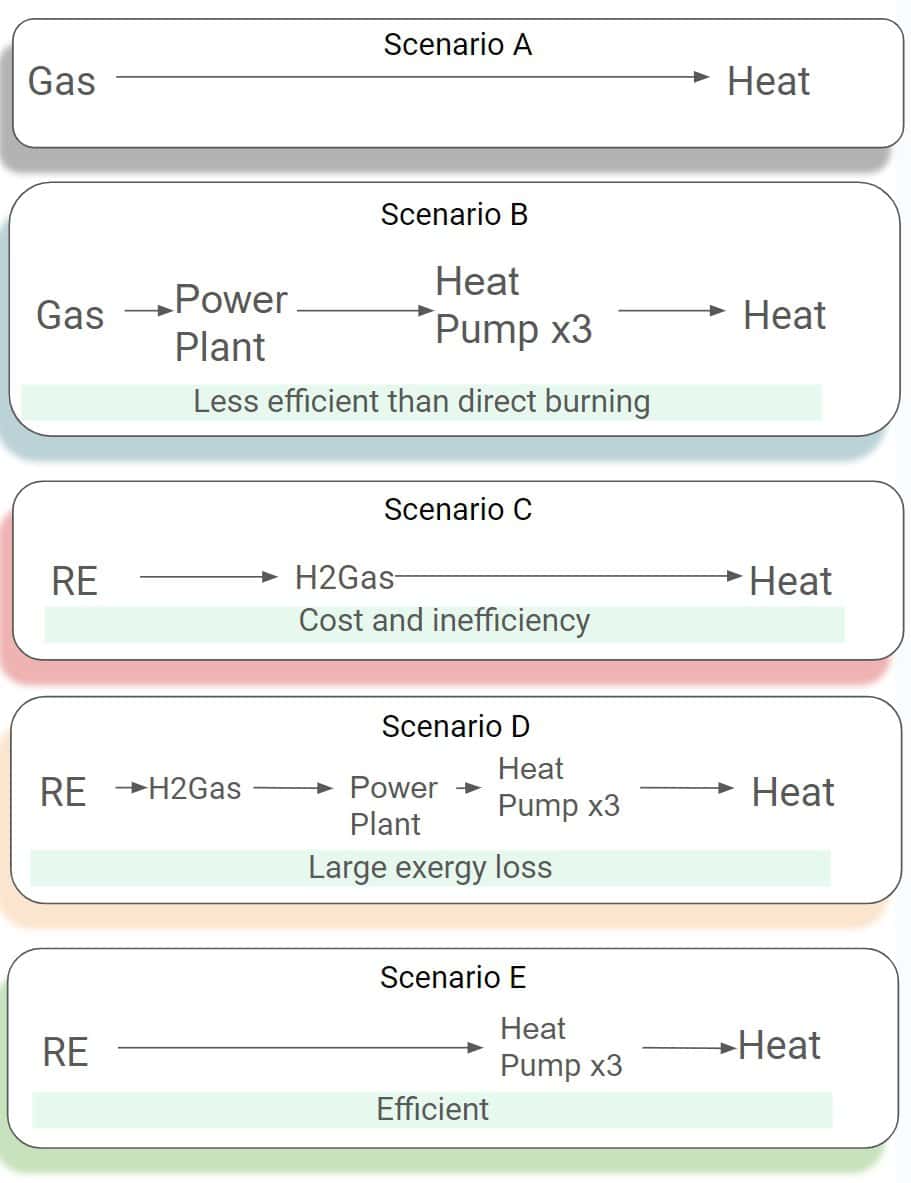
Hydrogen takes 3x as much energy to move than natural gas, which takes about as much energy to move as electricity. But per unit exergy moved, electricity wins, hands down. Those thinking it’s easier to move hydrogen than electricity are fooling themselves.
The Sankey Diagram by Sankey energy flow diagrams was created by David Cebon, Univ Cambridge for 70GW UK domestic heating. H2 needs 5.5 times more renewable energy. 5.5 times more capital. 5.5 times more emissions and 5.5 times higher price paid by consumers.
- Hydrogen: 367GW of wind capacity, 49,600km2
- Electricity: 67GW of wind 9,000km .

Storage
It is possible to store energy in molecules. There are other solutions. If electricity is 2c/kWh, H2 production all in is about 55 kWh/kg. That’s $1.10 per kg just to buy the electricity- nothing left for capital or other operating costs. The current price in the US Gulf coast, for wholesale hydrogen internal to an ammonia plant like this one- brand new, being constructed in Texas City- using Air Products’ largest black hydrogen SMR.
Martin points out the fundamental problems are
- electricity is never free
- cheap electricity is never available 24/7, so it always has a poor capacity factor and
- electrolyzers are not only not free, they are very expensive
- hydrogen production facility needs other capital equipment .
4. Industry Scepticism
Renewable electricity is more available, popular, and cheaper than ever. But nothing about hydrogen has changed. Global production of about 120 megatonnes with 98.5% made from fossils, without carbon capture. It’s a technical gas, used as a chemical reagent. Fifty percent is used in the oil refining process. H is not used as a fuel or energy carrier right now, at all.
Thats due to good reasons associated with economics that come right from the basic thermodynamics.
5. Greenwashing
With carbon capture (a scam in its own right), producing blue H2 increases the cost of H2. Green hydrogen is leading us toward a re-creation of the fossil fuel paradigm, selling us a fossil fuel with a thick obscuring coat of greenwash. That’s not in the interest of solving the crushing problem of anthropogenic global warming.
Summary
Martin marks up the Hydrogen Ladder by Michael Liebriech with his view and leaves with 5 uses only.
- Fertiliser
- Hydrocracking (reduced demand as oil demand drops)
- Desulphurisations (reduced demand)
- Steel (as oxidizing agent)
- Chemical feedstock.
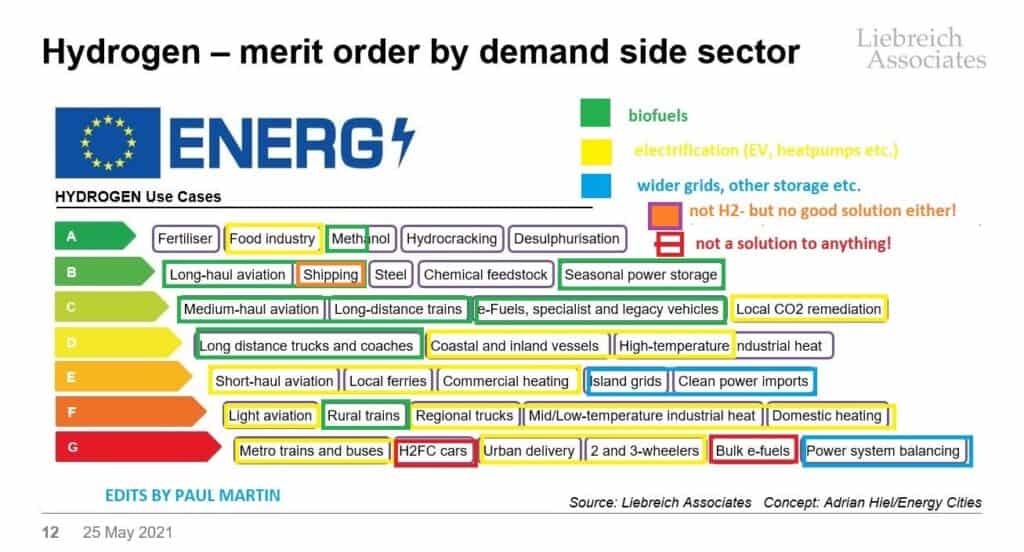
References and Further Reading
- Hydrogen Thoughts Distilled – 2021, revised 2023 Paul Martin https://www.linkedin.com/pulse/distilled-thoughts-hydrogen-paul-martin/
- List of articles Spitfire Research PaulMartin https://spitfireresearch.com/podcasts-and-youtube/
- Hydrogen From Renewable Electricity- Our Future? 2019 Paul Martin https://www.linkedin.com/pulse/hydrogen-from-renewable-electricity-our-future-paul-martin/
- Breakthrough in Electrolyzer Efficiency! 2023 https://www.linkedin.com/pulse/breakthrough-electrolyzer-efficiency-paul-martin/
- Hydrogen in aviation: Explainer video with Bernard van Dijk https://h2sciencecoalition.com/blog/hydrogen-in-aviation-explainer-video/
- The Case Against Hydrogen Trucks Paul Martin 2023 LinkedIn article
- Hydrogen to Replace Natural Gas- By the Numbers Paul Martin 2023 https://www.linkedin.com/pulse/hydrogen-replace-natural-gas-numbers-paul-martin/
- Home Heating- Electrification? 2019 https://www.linkedin.com/pulse/home-heating-electrification-paul-martin/


